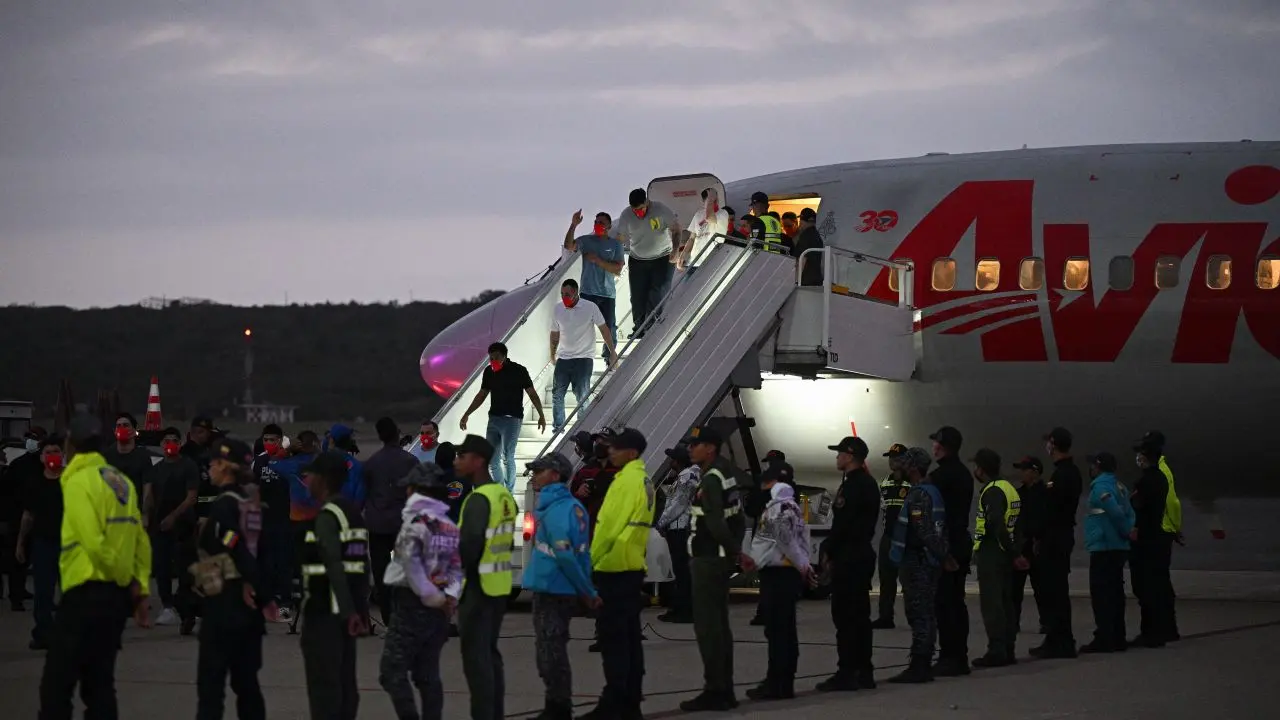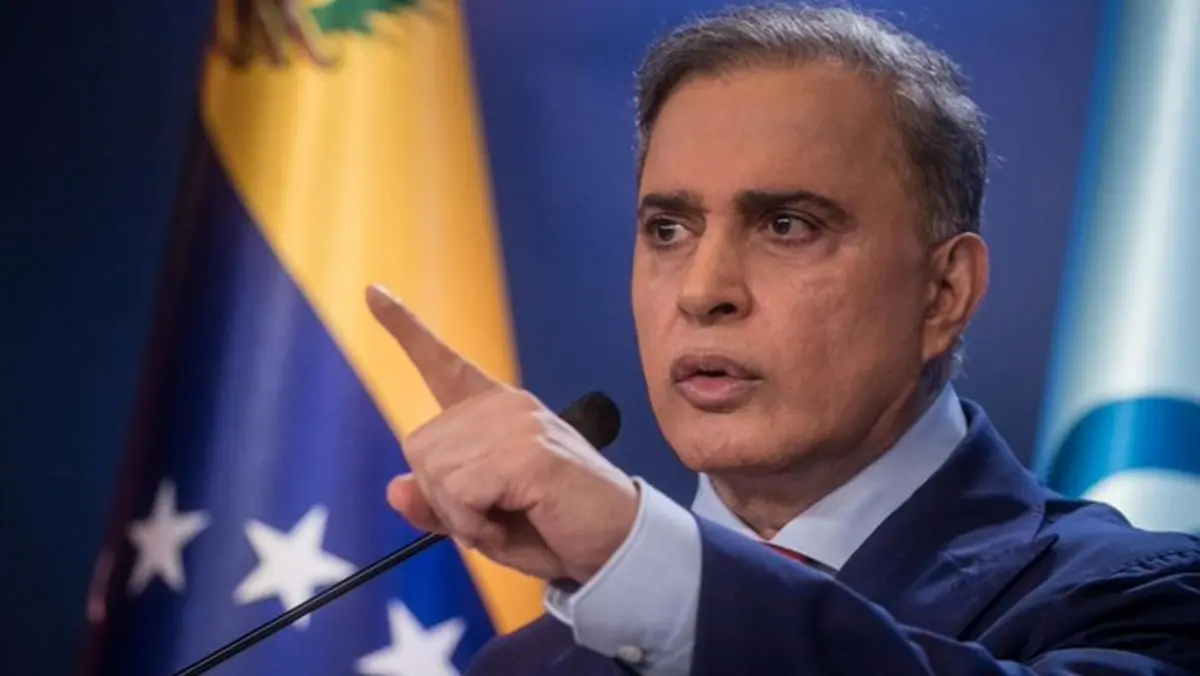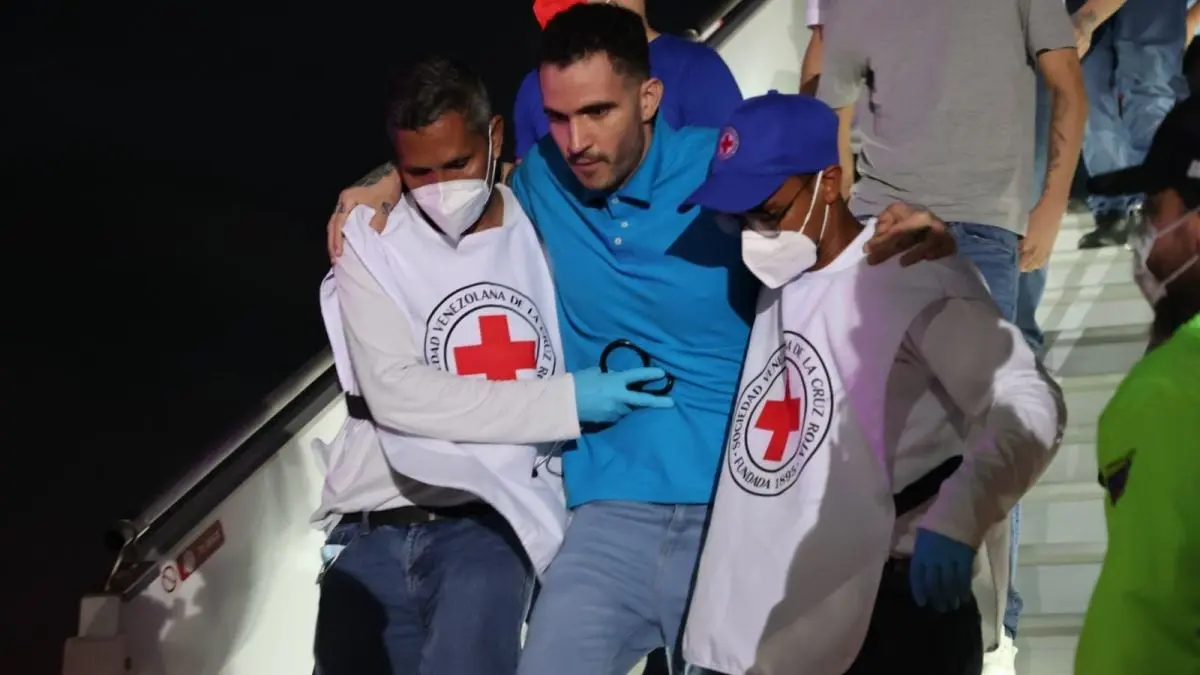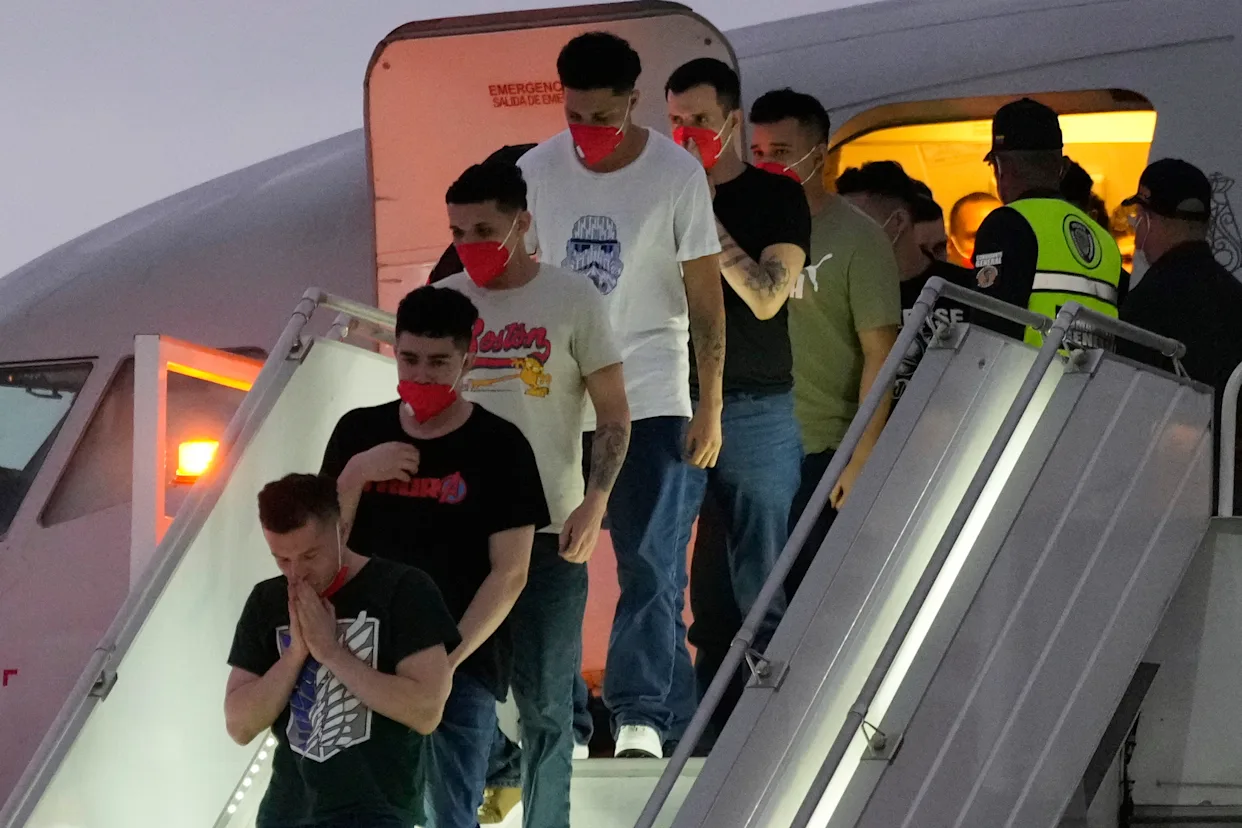Keys to the Venezuela-U.S. Negotiations to Rescue 252 Migrants
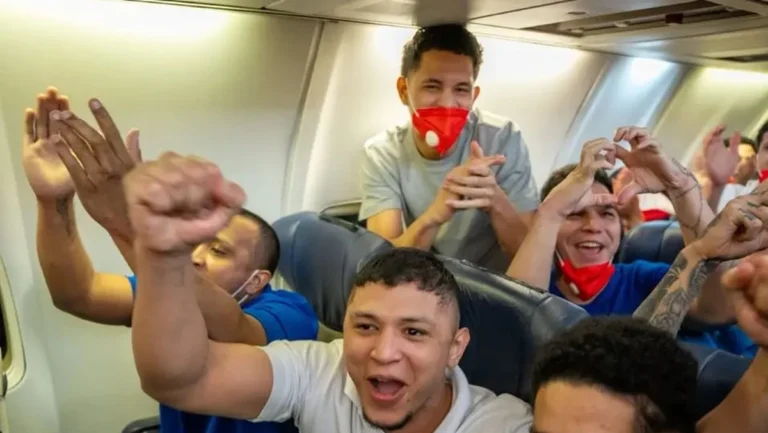
Venezuelan migrants rescued from the Salvadoran CECOT prison, July 19, 2025. Photo: Presidential Press
July 21, 2025 Hour: 8:40 am
Bukele has been exposed for what he is: a criminal, a murderer, and a torturer, lawmaker Rodriguez said.
On the afternoon of Saturday, July 19, Venezuela received a group of migrants deported from the United States who had spent months detained at El Salvador’s Terrorism Confinement Center (CECOT), the country’s massive maximum-security prison.
RELATED:
Jorge Rodriguez, president of Venezuela’s National Assembly and head of the commission that negotiated their release, revealed key details about the difficult negotiations his country conducted with the administration of U.S. President Donald Trump.
1. Venezuela Did Not Negotiate with Bukele
Rodriguez denied that Venezuela paid millions of dollars to the government of Salvadoran President Nayib Bukele for the release of the migrants held at CECOT.
“It never even crossed our minds to have any kind of conversation with Bukele because we know he is a clown,” the Venezuelan lawmaker said.
Over nearly four months of diplomatic efforts, conversations occurred only with officials from the Trump administration thanks to mediation by former Spanish Prime Minister Jose Luis Rodriguez Zapatero.
In a phone call, Venezuelan President Nicolas Maduro thanked Zapatero for his assistance in the dialogue process that led to the release of the 252 Venezuelans.
The Venezuelan government began its diplomatic efforts as soon as it learned that a group of Venezuelans had been transferred to El Salvador’s megaprison by order of the Trump administration.
Zapatero made clear that in order to foster a genuine atmosphere of dialogue, the negotiation process involved consultations with opposition politicians, including Stanlin Gonzalez and Timoteo Zambrano.
2. U.S. Sent Official List of Detainees Days Before the Swap
Throughout the negotiations, the Venezuelan government did not know the identities of the 252 Venezuelans held at CECOT, whose release was initially expected on Thursday, July 17. The official list of names was only received on the night of July 15.
3. U.S.-Venezuela Agreement Reached on July 18
Venezuelan negotiators and U.S. authorities had reached agreements on three separate occasions, but each time, the Trump administration altered the terms at the last minute. A concrete agreement was finally reached in the early morning hours of Friday, July 18.
4. El Salvador Tried to Sabotage the Swap
On the afternoon of July 18, Venezuelan Interior Minister Diosdado Cabello accused the Bukele administration of attempting to block the departure of the plane carrying the Venezuelan migrants by placing trucks on the airport runway.
Cabello said this sabotage attempt stemmed from the fact that the release of the Venezuelan migrants would mean a loss of $6 million per month that El Salvador was charging the United States to hold them at CECOT. As a result, U.S. pressure was necessary to ensure the plane’s departure.
5. The Conditions Were Unfair
Rodriguez emphasized the contrast between the individuals turned over to the United States by Venezuela and the condition of the Venezuelans returned from El Salvador.
While the Maduro administration handed over identified individuals who had admitted to crimes and gone through due legal process, Venezuelan authorities received no concrete information about the migrants at CECOT until they arrived back home.
While Venezuela delivered the detainees unharmed—including a former Marine who committed crimes in Iraq and Central America—the Venezuelan migrants had been tortured in CECOT.
One of them, Pedro Escobar, was arrested while working in the U.S. and accused of terrorism solely due to his Venezuelan citizenship. During his four months at CECOT, he was subjected to humiliation and physical abuse. Other returned migrants also confirmed they had “lived through hell” due to beatings by their captors.
Rodriguez said the return of the 252 Venezuelans dismantles the entire criminalizing narrative unjustly constructed against the migrants and exposes the illegality of their deportation from the U.S. to the Salvadoran prison.
“Bukele has also been exposed for what he is: a criminal, a murderer, and a torturer,” the Bolivarian lawmaker said.
teleSUR/ JF
Source: teleSUR


